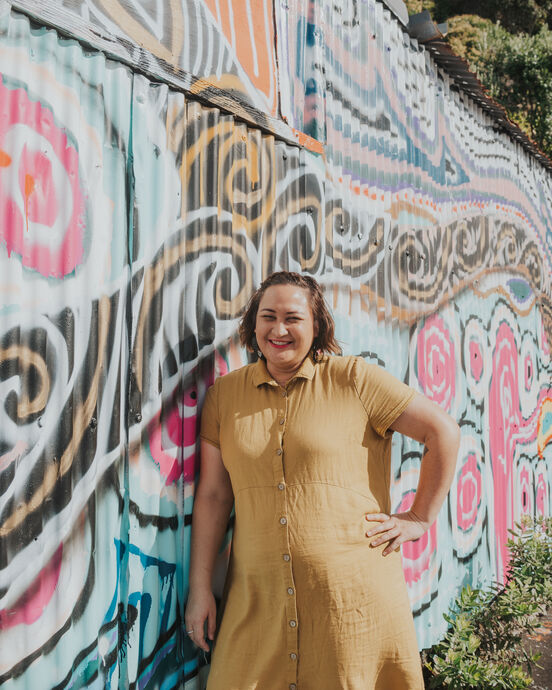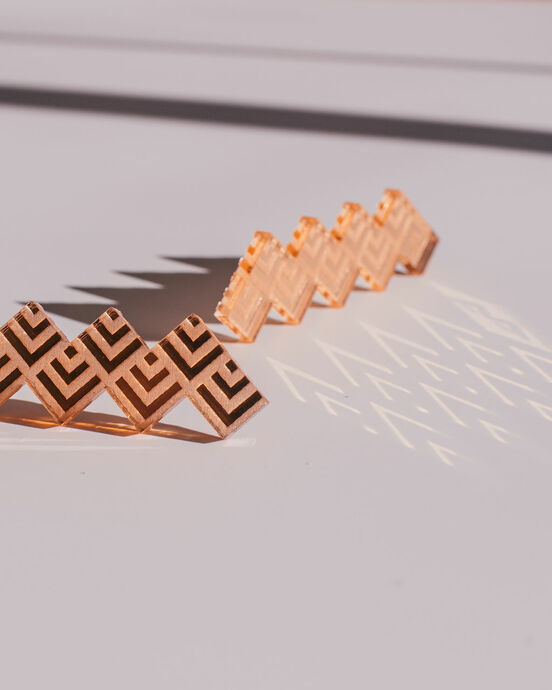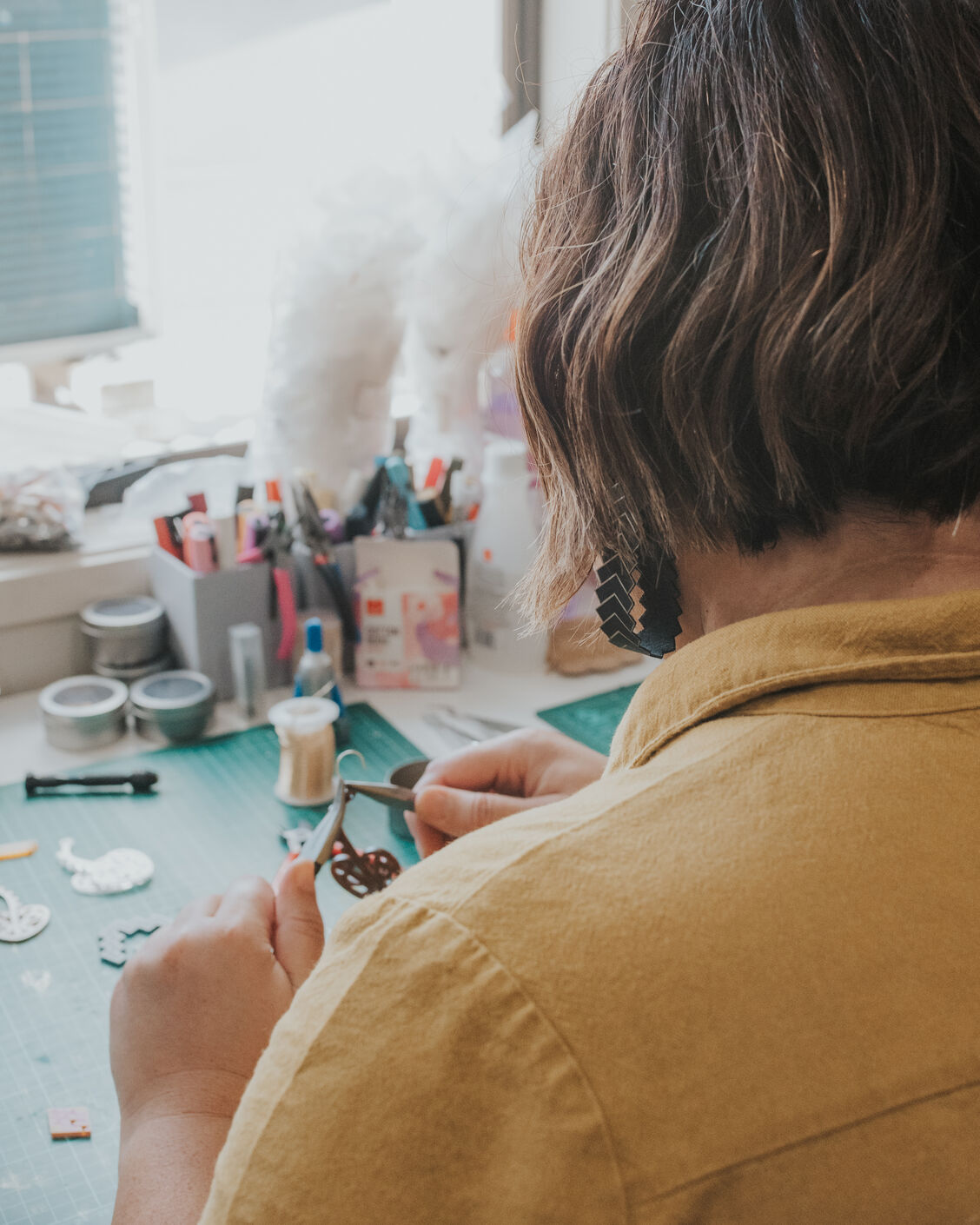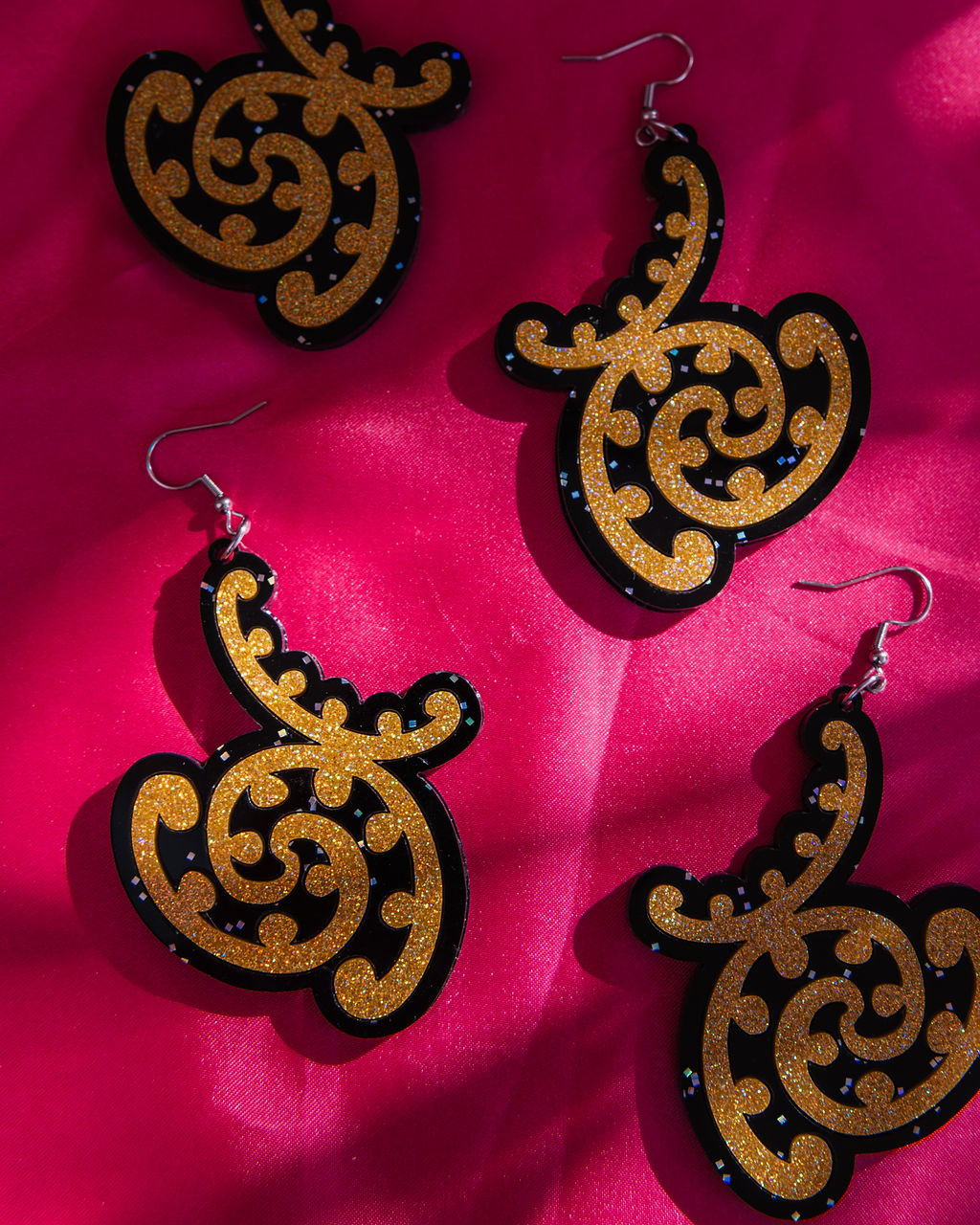Whakawhanaungatanga with Tracey Gardner from MISS MAIA
Tracey Gardner (Ngāti Tūwharetoa ki Kawerau, Ngāti Awa, Tūhoe, Pākehā) is the lead designer of MISS MAIA. MISS MAIA creates futurist designs awakened by ancestry. Here, Tracey describes her desire to help other express their own creativity, values, and whakapapa with her bright statement designs.
Can you tell us a little more about the tīhate that features in Pohewa Pāhewa?
Our tīhāte features our Kōtuitui design. The Kōtuitui design uses traditional silhouettes to re-imagine the notion of protection, nurture and connection to tīpuna.
Who are you designing for and why?
MISS MAIA launched from Melbourne, Australia in 2019 as a journey of self-reflection after the sudden passing of my pāpā. Up until my Dad’s passing, I’d been a working māmā in corporate marketing, not using my creativity, and had been adjusting to a new culture and country. MISS MAIA as a business came together as a reclamation of culture, whakapapa and creativity, to give space for others to [re]claim these parts of themselves too.
I understand what it can feel like being disconnected from your culture whether that’s physically or spiritually, so I design to help others feel connection and pride in their whakapapa.
We used the wise words of Queenie Erueti to preface the Tīhāte! Project: Kaua e wareware ko wai koe, kia a kaha koe ki to whakapapa. Remember who you are, your strength is in your genealogy. This whakatauki speaks about the importance of whakapapa – how does this relate to your design kaupapa?
Whakapapa is the pou tokomanawa of our design process and our pakihi. Whakapapa informs the creation and stories of our designs whether that’s personally or narratively. I’ve recently completed a new piece called the Whānau of Light which illustrates whakapapa in a completely different way than my clothing. This piece consists of two repeated Amber acrylic rounds measuring 750mm each which are joined together at their centre axis and hung. The design that is etched and cut onto the surface of each round represents the whakapapa of light and the beauty of creation from a te ao Māori perspective. The ancestral parents of light - Tangotango and Wainui - are surrounded by their children; Tama-nui-te-ra (sun), Marama (moon), Whetū (stars) and Hinātore (phosphorescent light). The Whānau of Light sculpture was exhibited at Depot Artspace and Waiheke Community Art Gallery as part of a collaborative exhibition for Oyster & Moon.
How would you define Māori Design in Aotearoa right now?
It’s tōnui (prolific)! Our digital experiences have had the biggest impact on shaping how Māori design has flourished in the last ten years. There’s more connectivity, accessibility, a greater inclusion of mātauranga Māori in design education institutions (as well as industries) and then there’s a greater confidence and autonomy to represent who we are in all spaces.
—
Designers name: Tracey Gardner
Business/organisation name: MISS MAIA
Whakapapa:
Ngāti Tūwharetoa ki Kawerau
Ngāti Awa
Tūhoe
Kaupapa:
MISS MAIA re-imagines traditional Māori designs in bold, imaginative and contemporary ways. We love creating unique products which allow others to express their own creativity, personality, values, culture and whakapapa (identity) with our bright, retro, futurist designs that each have their own story to tell. The brand is mostly known for its bold and contemporary statement acrylic jewellery designs but after many requests by new and loyal followers, MISS MAIA merchandise is now offered as another way to experience our MISS MAIA designs.
Whakapapa of Kaupapa in Pohewa Pāhewa:
The Kōtuitui design uses traditional silhouettes to re-imagine the notion of protection, nurture and connection to tīpuna. Our unique and contemporary designs are great for expressing authority, confidence and connection to identity.

Portrait of Tracey Gardner, mural painted by Te Marunui Hotene. Photographs by Jade Steel.

MISS MAIA Tai earrings. This design represents the rhythm and mauri (life-force) of tides and the brilliance of the Moon. They are symbols for the continuity of culture, knowledge and histories.


MISS MAIA Poipoi Earrings. Poipoi is an oversized statement earring that represents a celebration and nurturing of identity and playful expression.